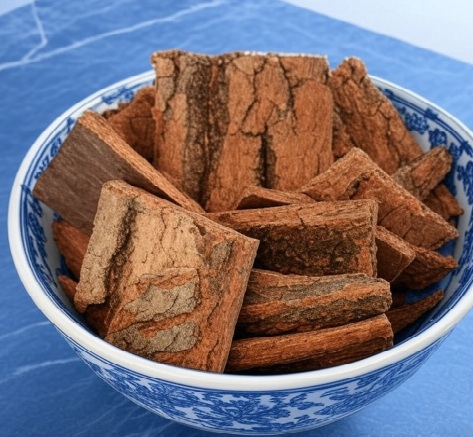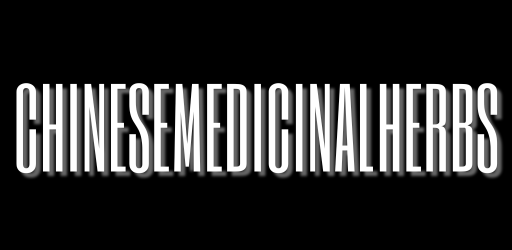Eucommia Bark Chinese Herb

Eucommia Bark (Du Zhong): A Strengthening Herb for Joints, Back, and Kidney Yang
Introduction
Eucommia bark, known as Du Zhong (杜仲) in Traditional Chinese Medicine (TCM), is a deeply strengthening herb used to tonify the Liver and Kidneys, support the lower back and knees, and calm a restless fetus during pregnancy. With its sweet and slightly spicy nature, Du Zhong is most valued for its role in reinforcing tendons and bones, making it ideal for those with joint pain, weakness, or Kidney yang deficiency. It is commonly included in formulas for longevity, flexibility, and structural support.
What Is Eucommia Bark?
Du Zhong is the dried bark of the Eucommia ulmoides tree, a resilient plant native to China. In TCM, it is classified as sweet, slightly spicy, and warm, entering the Liver and Kidney meridians. Traditionally, Eucommia bark is used to strengthen the sinews and bones, tonify Kidney yang, calm the fetus, and improve mobility in the elderly or those recovering from injury. It is a key ingredient in formulas for back pain, reproductive vitality, and musculoskeletal health.
Health Benefits of Eucommia Bark
Strengthens Tendons and Bones
Du Zhong is commonly used for weak or aching lower back and knees, especially in elderly individuals or postpartum recovery.
Tonifies Kidney Yang and Reproductive Health
It supports vitality, libido, and fertility in men and women by nourishing the Kidney yang and jing (essence).
Calms the Fetus and Supports Pregnancy
Often used to prevent miscarriage in women with signs of Kidney deficiency, such as lower abdominal weakness or frequent urination.
Improves Joint Flexibility and Mobility
Du Zhong is helpful in cases of stiffness, joint instability, or chronic musculoskeletal weakness.
Supports Healthy Blood Pressure
Modern research suggests Du Zhong may help regulate blood pressure due to its vessel-relaxing and anti-inflammatory properties.
How to Use Eucommia Bark
In Decoctions or Bone-Strengthening Teas
Simmer 6–15 grams of Du Zhong with herbs like Gou Qi Zi (goji berry), Dang Gui, or Niu Xi for 30–60 minutes to support joint and Kidney health.
In Soups or Medicinal Broths
Add to tonic soups with pork bones, red dates, and Chinese yam for postpartum recovery or aging support.
In Capsules or Tincture Form
Du Zhong is available in modern extract powders and capsules, often combined with other yang tonics for ease of use.
Where to Buy Eucommia Bark
You can find Du Zhong at the following places:
-
Chinese herbal medicine shops and apothecaries
-
Online retailers such as Amazon, iHerb, or TCM specialty providers
-
Herbal supplement companies offering tonic blends
Look for:
-
Thick bark slices with visible white latex threads inside
-
Properly dried and aged for potency
-
Organic or wildcrafted, lab-tested for safety and purity
Are There Any Side Effects?
Eucommia bark is considered very safe and gentle for long-term use. Because it is warming, it may not suit those with heat conditions or yin deficiency with internal heat. It should be used with care during active infections or high fevers. Always consult a qualified practitioner if using while pregnant.
Conclusion
Eucommia bark, or Du Zhong, is a time-honored yang tonic in TCM that supports the lower back, joints, and reproductive health while strengthening the Kidneys and Liver. Whether decocted in herbal teas or included in tonic broths, this herb is a key ally for restoring vitality, stability, and graceful aging.
FAQs
Can I take Eucommia bark every day?
Yes, it’s often used long-term in moderate amounts to support joint strength, vitality, and Kidney health.
What does Eucommia bark taste like?
It has a mild, slightly bitter and woody taste, often masked by sweet or spicy herbs in decoctions.
Is Eucommia bark safe for children?
It is rarely used in pediatric cases unless prescribed for developmental delays or congenital weakness under practitioner guidance.

